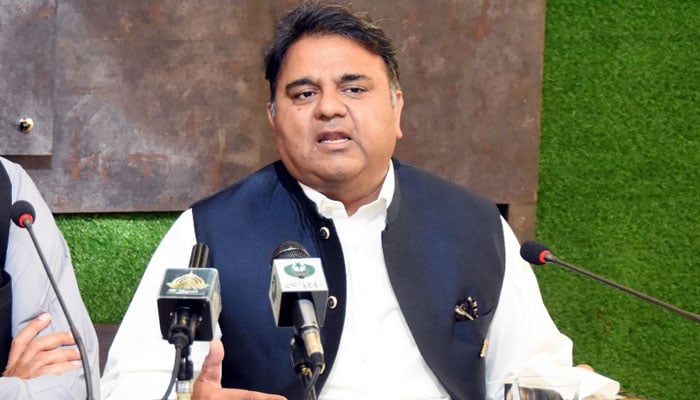
Federal Minister for Information and Law said Friday voting on the no-trust motion against Prime Minister Imran Khan could shift to next week.
In a historic judgment a day earlier, the Supreme Court of Pakistan had ordered National Assembly Speaker Asad Qasier to summon the session on Saturday (April 9) no later than 10:30am to allow the vote on the no-confidence motion against the premier.
The Supreme Court of Pakistan had also restored the National Assembly after it declared the government’s decision to dissolve the assembly and NA Deputy Speaker Qasim Suri’s ruling null and void and against the Constitution.
Contrary to the apex court’s orders, Fawad said the voting on the no-trust motion against Prime Minister could be shifted to the coming week instead of taking place today.
“We will not take much time, however, the foreign secretary will brief the house on threat letter before discussion on a vote of no trust,” said Fawad.
According to sources, despite the court’s orders, the PTI-led government has planned not to conduct voting on a no-confidence motion today.
They added that PTI’s members of the Parliament have been directed to hold “long debates during the NA session,” so the voting can be “avoided due to a shortage of time.”
On the other hand, the National Assembly secretariat urged members that the voting on the no-trust motion against PM Imran Khan must be conducted today, otherwise, the speaker can be charged with contempt of court.
In the NA’s six-point agenda issued Friday, voting on the no-confidence motion is at the fourth position.
PTI’s political committee proposes en masse resignations
The ruling PTI’s political committee, a day prior, had suggested that the party should hand down en masse resignations from the legislatures in the Centre, Punjab, and Khyber Pakhtunkhwa, sources privy to the matter said.
The suggestion came during the meeting of PTI’s political committee chaired by Prime Minister Imran Khan.
Sources said that the meeting discussed the current political situation in the country and held consultations on whether to make the alleged foreign plot in the “threat letter” public.
As per sources, committee members presented suggestions regarding the matter in light of the Secrets Act and judicial orders.
The committee suggested making the “threat letter” public, saying that since there is pressure from the public, a decision should be made through thoughtful consideration.





